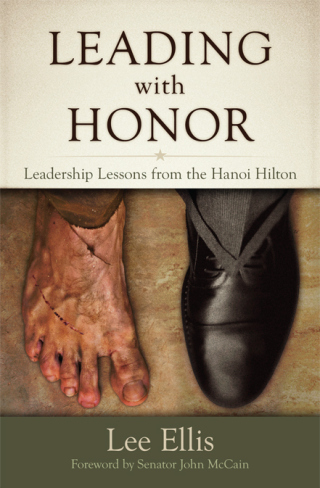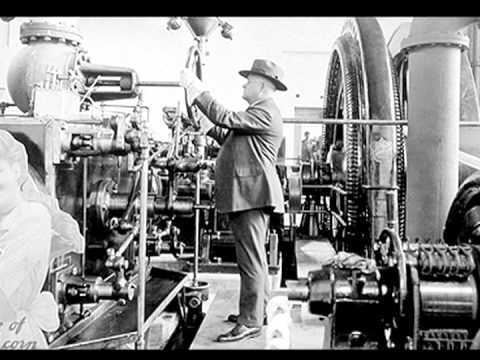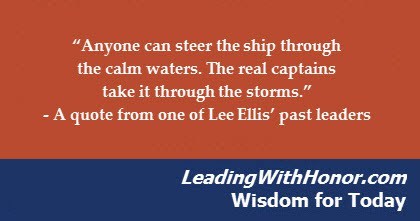Lee Ellis's Blog, page 305
June 5, 2015
Leading with Honor Wisdom for Today, June 5, 2015
June 3, 2015
Feel the Temptation to Stretch the Truth? 3 Ethical Guardrails to Keep You in the Right
By Lee Ellis (Sign up and watch Lee’s Coaching Video related to this article.)
You’ve just been presented with an opportunity to slightly bend the truth, withhold some key information, or potentially worse. “Not a problem for me, I’m an ethical person,” you say. Yet, we see this problem happening every day to people at every level in every profession—lawyers, doctors, pilots, sheriffs, teachers, students, CEOs, and church leaders.
Like guardrails, ethical standards serve as boundaries to keep us from doing harm to ourselves and others. We cross those lines at our own peril, knowing that sooner or later there will be consequences. Let’s look at Article 4 of the Honor Code –
“Be Ethical: Operate within the laws of the land, the guidelines of your profession and the policies of your employer.”
Three Ethical Headlines
Last year I was checking into a hotel when the headlines of the free local paper caught my eye: “Lawyer Admits to Bribing Judge.” I picked up a copy of the paper and later in my room sat down to read it. The first section was mainly a recitation of one illegal act after another—sixteen in the first section. Now I know that the press loves to catch our eye with this kind of negative stuff, but it was no doubt true and disappointing. It was powerful support for my presentation the next day of Leading with Honor®.
More recently, in a nearby small town north of Atlanta, 35 of 70 students taking an AP History class were caught up in a cheating scandal. Most of the students admitted they knew better and a few claimed that they were only collaborating as their previous teacher had allowed (you may recall a similar story at Harvard University in one of my previous blogs).
The same week that I read about this recent cheating incident, the New York Times headlines announced that four of the world’s largest banks—Citigroup, JPMorgan Chase, Barclays and Royal Bank of Scotland — pleaded guilty to a series of federal crimes over a scheme to manipulate the value of the world’s currencies.
Our Ethical Motives
Being ethical may sound easy, but the evidence shows that regardless of intellect or position, almost everyone is vulnerable. I’m convinced that none of these people just woke up one day and said, “Today I’m going to do something illegal or unethical.”
Most of us are pretty committed to following the standards and the law—except maybe for speed limits, parking tickets, and a few other traffic offenses. Generally, it’s because we understand and accept the standard, and even when we don’t agree, the consequences of getting caught can be a good deterrent to doing something unethical.
But when our human nature hot buttons of pride, independence, fear and greed get pushed, we can rationalize and step over the line. What can keep us from doing that?
Three Steps to Solid Ethical Character
Like so many other areas of leading and living with honor, it’s about being intentional, being self-aware, and then acting on what you know is right. These three steps can help us guard our character and be ethical in daily life –
Be intentional. Be deliberate or purposeful in carrying out your “good intentions.” Is your concern only about your reputation—what others think of you—or is it also about your character and the person you are committed to be? Intentionality allows you to draw on your good motives and gives you the energy and drive to discipline yourself and choose to follow through.
Be self-aware. Self-awareness provides the critical management information that you need to make good choices. Awareness of ethical standards and boundaries as well as your emotions will be important data for making good choices. Situational awareness (not to be confused with situational ethics) is also important. Quite often situational awareness reminds you of the problems and consequences of violating ethical standards.
Do what you know is right. Draw from your proud heritage as well as the vision of who you want to be to gain the courage for standing firm in your commitments to maintain your character and integrity.
Former White House Counsel Jeb McGruder, convicted in the Watergate scandal, explained this problem well, saying,
“Somewhere between my ambition and my ideals, I lost my ethical compass. I found myself on a path that had not been intended for me by my parents or my principles or by my own ethical instincts.”
Are you guarding your integrity? What are your guardrails? How do you avoid losing your moral compass? Please share your experience and how you manage this crucial area of life and leadership.
LE
P.S. Want to see my monthly leading with Honor video coaching on this topic? It’s free—simply sign up to receive it in your inbox.
Related Articles:
– Honor Code Article 1 – Four Lies that All Leaders Are Tempted to Use, and How to Tell the Truth
– Honor Code Article 2 – Treating Others with Dignity and Respect Even When It’s Difficult: Four Leadership Traps to Avoid
– Honor Code Article 3 – 7 Leadership Steps That You Need to Know on Keeping Your Promises
Sources:
[1] http://www.nytimes.com/2015/05/21/business/dealbook/5-big-banks-to-pay-billions-and-plead-guilty-in-currency-and-interest-rate-cases.html?_r=0
[1] An American Life: One Man’s Road to Watergate, Jeb S. Marauder


June 2, 2015
Gathering of Eagles Honors Notable Leaders – Lee Ellis Speaks
This week, Lee receives another special honor in being selected as an “Eagle” in the Gathering of Eagles program at Maxwell Air Force Base. Over the last 30 years, notable Eagles such as “Chuck” Yeager, Neil Armstrong, George H.W. Bush, Jefferson Alexander, Elizabeth Strohfus and others have shared their stories as part of the GoE program.
Lee will be sharing his experiences and expertise share with current and future military leaders in an educational setting. Below is a new lithograph of that was created to honor special event. Thank you for celebrating with us, and please share!


June 1, 2015
Which Personality Type Do You Want for a President?

Pictured left to right: President John Adams and President Thomas Jefferson
Which personality type makes the best president? Strong, charismatic, and bold? Or maybe subdued, steady, and a deep thinker? Can we have both in the person?
Lee shares his research and expertise on two historical examples of presidents that had very different personalities – please read and share your thoughts.


May 31, 2015
On This Day in Leadership History, May 31, 2015
On this day in leadership history in 1884, Dr. John Harvey Kellogg patented “flaked cereal.” Inspiring and exploiting your personal creativity can make many, many people happy if you’re willing to share it!
Think out of the box (no pun intended) and find solutions that benefit entire populations of people in your sphere of influence.
John Harvey Kellogg – Wiki


May 30, 2015
Giving Reminder During the Summer for Leaders
During the summer months, please remember vital non-profit organizations that are preparing for the Fall season. Lee Ellis and Leading with Honor support several organizations that provide help, wisdom, and practical service to active military and veterans around the world.
Learn more about them, and please share the non-profit organizations that you support!


May 29, 2015
Leading with Honor Wisdom for Today, May 29, 2015
“Anyone can steer the ship through the calm waters. The real captains take it through the storms.” – A quote from one of Lee Ellis’ past leaders


May 28, 2015
Is Biased Leadership Dangerous? Read and Share Your Opinion
What’s your opinion on news media leadership in regards to biased news? Does it exist? And what do you expect during the 2016 Presidential Election Race? Click to read a recent article from the Rasmussen Report, and thanks for sharing –


May 27, 2015
Need a Leadership Boost During the Summer Months?
Need a quick leadership coaching boost during the summer months? Take 5 minutes and watch Lee’s monthly Leading with Honor video coaching.
It’s exclusively available by signing up for the Leading with Honor email – Sign Up Here


May 26, 2015
Struggling to Get a Positive Perspective? See Inside and Be Encouraged
 Struggling to get a positive perspective in a situation? Need an attitude adjustment? Here’s an excerpt from Lee’s book, Leading with Honor, on staying positive –
Struggling to get a positive perspective in a situation? Need an attitude adjustment? Here’s an excerpt from Lee’s book, Leading with Honor, on staying positive –
“POWs are not alone in facing hardships. All leaders face difficulties and challenges every day. None of us can control what the next day will bring, but there is one thing we all can control: our attitude. Attitude is crucial for success in any endeavor, and no one influences organizational and individual attitudes more than the leader.
Leaders Face Adversity with a Positive Attitude
Although it’s not easy to turn lemons into lemonade, leaders must strive to do just that by maintaining a positive attitude. We have to expect that we’re going to be handed lemons, sour grapes, rotten deals, and unfair decisions. How we deal with them is the true test of our leadership. Because leaders have such a powerful influence on others, they don’t have the luxury of wallowing in negativity and self-pity. Attitude was not a problem for me as a POW. I believed that someday we would return and things would be okay. Actually, I had more difficulty with attitude after I returned home to the “real world,” because I expected everything to run smoothly all the time. Of course, that was not the case, and I had to learn to adjust.
As a young flying squadron commander, I had the privilege of leading a select group of T-38 instructor pilots (IPs), all of whom had one thousand or more hours of instructor time in the aircraft. They were mostly the cream of the crop, and they helped us garner a reputation of excellence. One day in the midst of our normal flying operations, two officers from the Inspector General (IG) team arrived and set up shop in one of our offices. It turned out that they were conducting a follow-up investigation on an accident that had occurred at another base. The instructors responsible for the accident had been trained in our squadron three years prior. They were flying an unauthorized maneuver at the time of the accident, so the investigators were looking for a thread of deviancy that might trace back to our unit, even though their training had occurred before any of my guys had arrived on station.
Because the IG was involved, as opposed to the accident board, the investigation had the feel of a hunting expedition that was looking for a scapegoat. Moreover, I felt that their approach of interrogating our instructor pilots under oath would hurt morale and interfere with our focus on flight operations. (It didn’t occur to me at the time, but in retrospect I can see that my anger might have been aroused by my emotional memory of abuses in interrogations I experienced as a POW.) When I complained to my boss, he gave me a frustrated look and said, “Lee, anyone can steer the ship through the calm waters. The real captains take it through the storms.” His powerful statement hit me like a sledgehammer. It was a great lesson that inspires me to this day. Leaders take others through the difficult times, and to do that they must engage even negative and “unfair” situations with a positive attitude. On the way back to the squadron, I revamped my attitude and accepted the challenge. We sailed through that little storm with ease.”
Learn More about Leading with Honor.
















